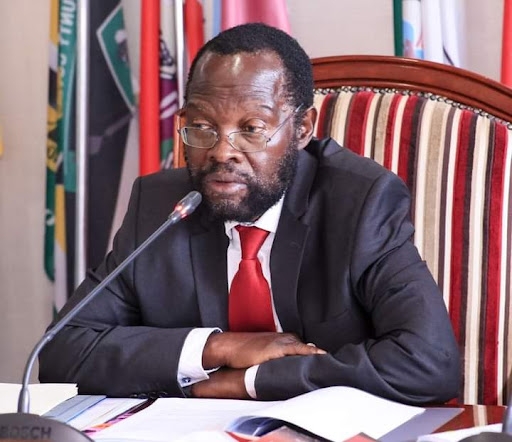

Former Interior Cabinet Secretary Fred Matiang’i’s return to the country from the US has introduced a new layer of complexity to Kenya’s evolving political terrain. After months of silence abroad, his quiet return—greeted by a small group of supporters and a few Gusii leaders at the Jomo Kenyatta International Airport—sparked more curiosity than fanfare. It was a low-key reentry, more symbolic than strategic, signalling a possible recalibration of his public image as he steps into the political spotlight.
Matiang’i is no stranger to the Kenyan public. His tenure as CS in multiple ministries earned him praise for his firm leadership style. From curbing exam cheating to streamlining public service delivery at Huduma centres, his track record in government is arguably one of competence and results. For many in the middle class and professional circles, he represents a brand of leadership grounded in discipline and efficiency.
But in Kenya, winning the presidency is not solely a matter of administrative credentials. It demands political agility, emotional resonance and grassroots connectivity. The electorate is not just looking for polished résumés—they want leaders who understand the lived experience of the mama mboga in Kawangware, the boda boda rider in Bungoma and the matatu operator navigating Nairobi’s chaotic traffic. These are the voters who queue for hours, brave harsh weather and cast the ballots that decide presidencies.
This is where Matiang’i faces a significant challenge. He has never held elective office, lacks a grassroots movement and is yet to articulate a political message that reaches beyond elite urban constituencies. In a landscape where retail politics often trumps policy credentials, his style of leadership—more suited for state boardrooms than open-air rallies—may struggle to capture hearts and votes.
Moreover, his association with the Jubilee administration presents a complicated legacy. As Interior CS during the turbulent 2017 election, he presided over decisions that remain controversial, including media shutdowns and perceived crackdowns on opposition voices. These moments—whether strategic or circumstantial—continue to define public perception. Without a clear position or acknowledgment of these events, it will be difficult for him to claim the mantle of reformer with full credibility.
Ethnic arithmetic also looms large. Matiang’i’s Gusii community, while influential, cannot deliver State House without broader national alliances. Kenya’s electoral math is unforgiving to solo runs. Building bridges with regions like Mt Kenya, Rift Valley, Coast and Western is no longer optional—it’s essential. And unlike President William Ruto, whose “hustler” movement was painstakingly cultivated through years of grassroots organising and relentless interaction with small business owners and informal sector workers, Matiang’i has yet to demonstrate a similar capacity for political mobilisation.
On the policy front, his campaign message so far leans heavily on past accomplishments. While competence is valuable, it is insufficient if not coupled with a clear vision for the future. How does he plan to lower the cost of living? What’s his blueprint for tackling youth unemployment, supporting MSMEs and improving access to affordable healthcare? Kenya is home to millions of jobless youths, who are increasingly disillusioned with politics that recycle promises but deliver little. What will he offer them—not in theory, but in action? What is his proposal for integrating them into a rapidly changing economy, or unlocking their potential as drivers of innovation and enterprise?
What will he offer the mama mboga struggling with high market levies, the boda boda rider seeking access to credit, or the matatu operator facing rising fuel costs and harassment on Kenyan roads? Until he addresses these bread-and-butter issues with clarity, his candidacy risks being viewed as elite and detached.
Still, Matiang’i’s entry into the race adds depth to the 2027 conversation. He introduces a narrative of merit-based leadership and government accountability—qualities many Kenyans say they desire in a president. His presence could push the discourse away from personality cults and ethnic patronage, toward issue-based campaigning. Whether that shift is sustainable or politically rewarding remains to be seen.
Ultimately, Matiang’i must evolve. His presidential run will require him to engage directly with ordinary Kenyans, build a formidable coalition and present a compelling national vision that speaks to all classes and regions. He must transition from the steely bureaucrat to a people-facing candidate, willing to get into the political trenches with seasoned campaigners. Otherwise, despite his credentials and good intentions, his bid may remain a political experiment that never gained national traction.
The writer is a political analyst, commentator and governance consultant. He writes on leadership, public policy and Kenya’s evolving democratic space












